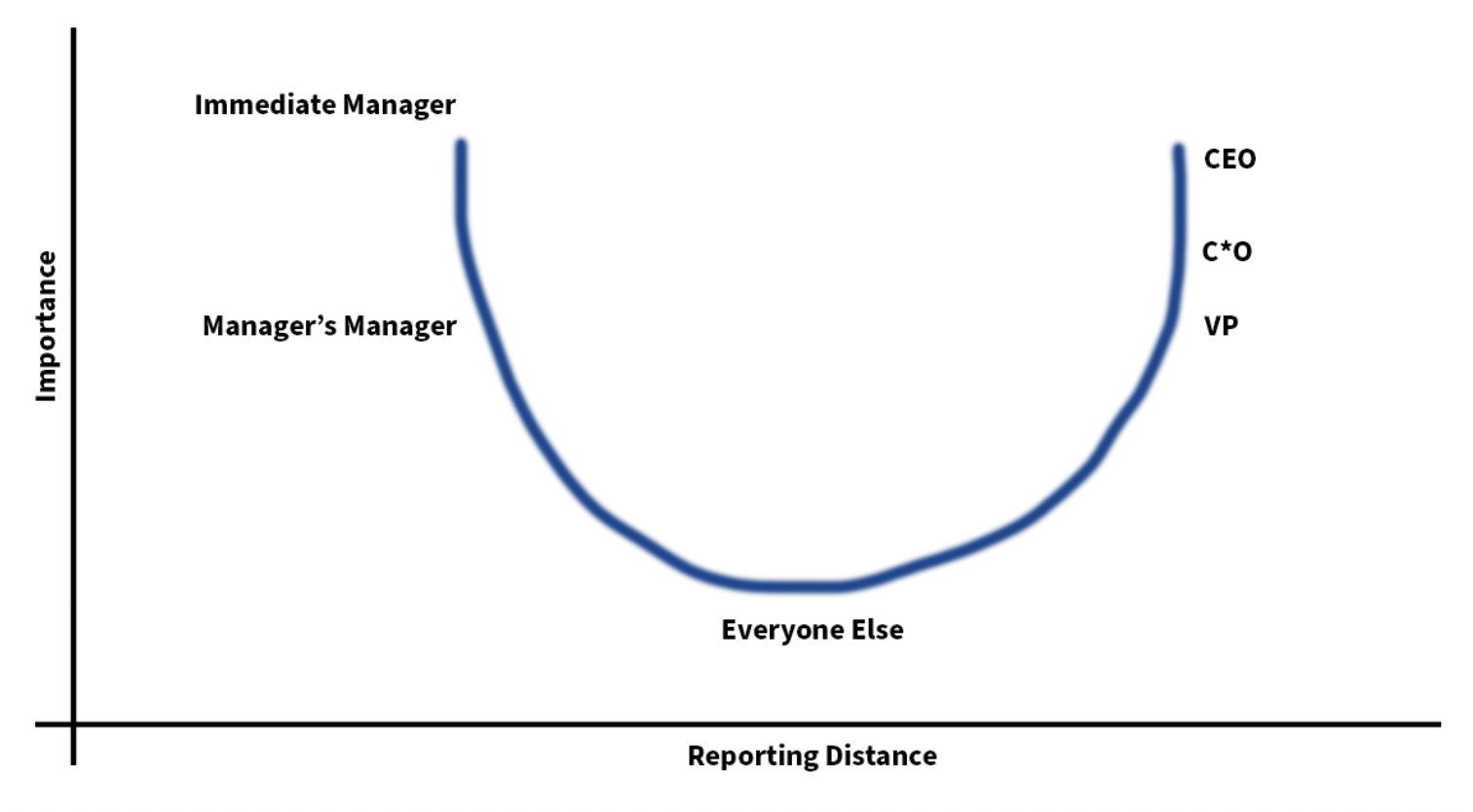On Middle Management
There is an old saying in business that people don’t leave a job, they leave a manager. I have found this to be generally accurate. But in my experience the next most likely person to influence them isn’t their manager’s manager. It is the CEO.
One reason I think middle managers so often feel like they are in no-man’s land is because, well, they are. This is a chart I made up of how valuable a connection is from each person to the various levels of management above them.

The ennui many middle managers feel at the trough of this diagram is understandable. To the team you are the voice of management. But to management you are the voice of the team. When I was at the nadir of this chart in my own career it was the closest I came to leaving Facebook.
Eventually I managed to sort out a few strategies that helped me genuinely enjoy middle management.
First, take pride in your job as the central link in the chain. Be an efficient conduit of information in both directions. Don’t create any friction in either direction unless you are sure you have unique value to add. Too many middle managers create a layer for themselves when it isn’t necessary which slows things down and is a form of value add disease.
Second, use this opportunity to sharpen your skills managing managers and information flows. Those will be your core responsibilities for the rest of your career from this point forward.
With those basic responsibilities sorted, you will find that this position in the value chain allows you to identify opportunities nobody else sees. While employees and senior leadership align on the work, you are effectively left to operate the machinery by which work gets done. You have purview over the processes that enable communication, escalation, and decision making.
As you advance in your career these things start to become obfuscated as people push them below the surface to cater more to you. But they are always there, as a hidden form of gravity that you will recognize if you invest the time now. When teams slow down or drift from their mission, this is where the problem is. When scope creeps or execution lags this is usually the first place to look. I think this is one reason managers who were developed internally often outperform those who arrived on top of an organization. It helps if the machinery of progress isn’t entirely an abstraction.